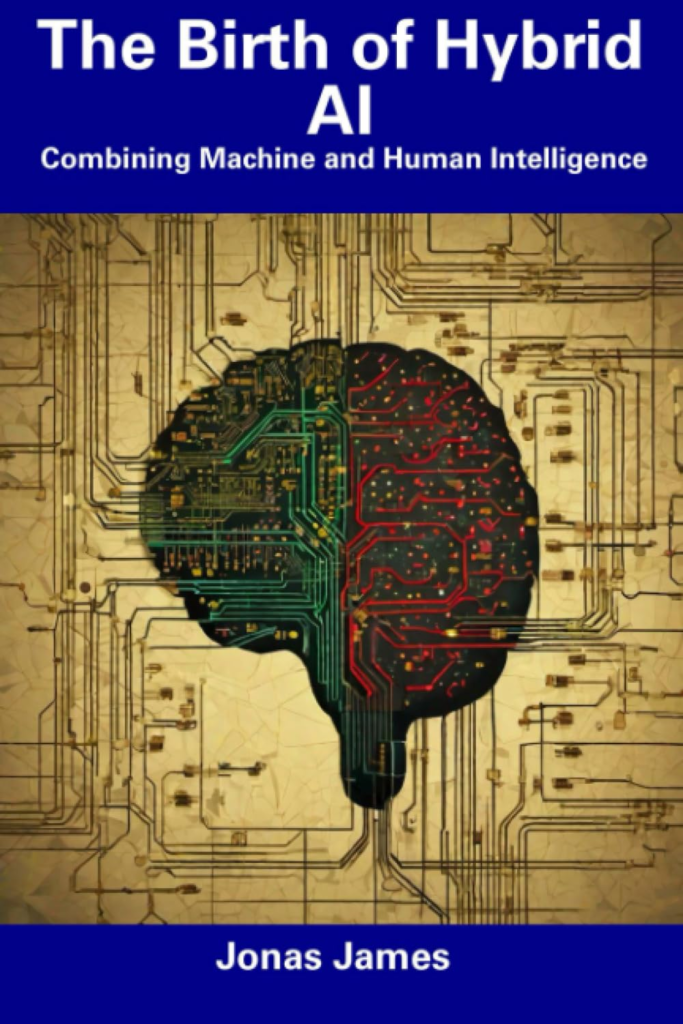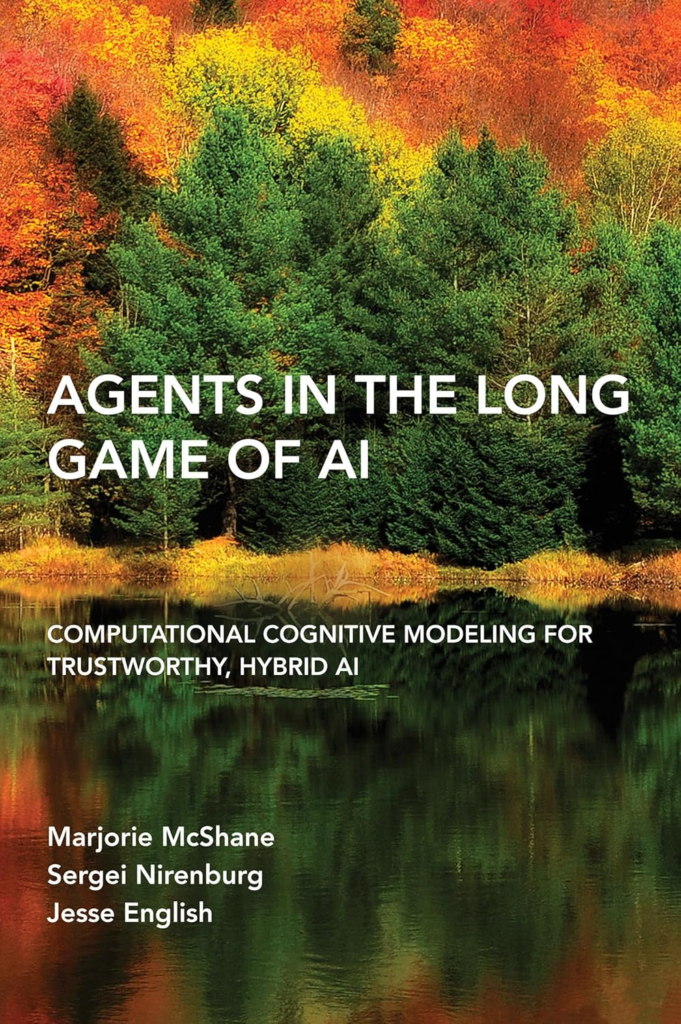Introduction to Hybrid AI
Hybrid AI represents an innovative approach that combines two dominant paradigms in the field of artificial intelligence: symbolic AI and machine learning. Symbolic AI, often referred to as rule-based systems, relies on explicitly defined rules and logic to process information and solve problems. On the other hand, machine learning employs data-driven techniques to enable systems to learn from vast amounts of data, identifying patterns and making predictions without the need for stringent rules. The synthesis of these two methodologies into Hybrid AI creates a more versatile intelligence framework, capable of addressing complex and multifaceted challenges that neither approach could manage independently.
The significance of Hybrid AI lies in its ability to harness the strengths of both methodologies. Symbolic AI excels at tasks requiring reasoning and understanding, such as natural language processing and expert systems. In contrast, machine learning thrives in environments rich in data, where it can uncover hidden insights and make real-time predictions. By integrating these approaches, Hybrid AI can provide a more comprehensive understanding of situations, leveraging contextual awareness and adaptability to enhance performance across various applications.
For instance, in healthcare, Hybrid AI can combine rule-based reasoning for clinical decision support with machine learning for patient data analysis, resulting in improved diagnostic accuracy and personalized treatment plans. This kind of synergy is not only applicable in healthcare but also in areas like robotics, finance, and autonomous systems, where both reasoning and learning play crucial roles.
As technology continues to evolve, the adoption of Hybrid AI is becoming increasingly vital to develop systems capable of tackling the next generation of complex problems. The fusion of symbolic AI and machine learning sets the groundwork for more intelligent systems that can learn, reason, and make decisions in dynamic environments, highlighting its potential in shaping the future of technology.
(Purchase today by clicking on the image)
Key Features of Hybrid AI
Hybrid AI represents a significant advancement in artificial intelligence, combining the strengths of both symbolic reasoning and machine learning. This integrative approach enables Hybrid AI to effectively adapt to various types of data, making it versatile and applicable across diverse industries. The capacity for adaptation allows Hybrid AI systems to process structured data, such as databases, alongside unstructured data, like text and images, optimizing their usability in real-world applications.
One of the foremost characteristics of Hybrid AI is its interpretability. Unlike traditional deep learning models, which often operate as “black boxes,” Hybrid AI systems offer greater transparency in their decision-making processes. This feature is crucial in fields such as healthcare, finance, and autonomous driving, where understanding the rationale behind AI decisions can significantly influence outcomes. By enabling users to trace the reasoning underpinning AI-generated decisions, Hybrid AI cultivates trust and accountability, fostering closer collaboration between humans and machines.
Moreover, efficiency in learning is another hallmark of Hybrid AI. By leveraging both data-driven learning techniques and pre-defined rules, these systems can rapidly assimilate information while refining their performance over time. This efficiency facilitates swift responses to changes in data or circumstances, providing organizations with a competitive advantage in rapidly evolving markets. Furthermore, Hybrid AI systems capitalize on the strengths of various learning paradigms, achieving improved predictive accuracy while minimizing the need for extensive labeled datasets.
Lastly, the ability to reason and understand context is pivotal to the effectiveness of Hybrid AI. By integrating contextual awareness into its operations, Hybrid AI can analyze relationships and dependencies within data, enabling it to generate more meaningful and relevant insights. This feature allows for sophisticated problem-solving capabilities, which are necessary for navigating complex real-world challenges.
Applications of Hybrid AI in Various Industries
Hybrid AI is increasingly becoming a pivotal force in transforming multiple industries by integrating the strengths of both machine learning and symbolic reasoning. In healthcare, for example, Hybrid AI systems analyze patient data while employing expert knowledge to enhance diagnostic accuracy. These systems are capable of identifying patterns in vast datasets to predict disease outbreaks or suggest personalized treatment plans, ultimately improving patient outcomes.
In the finance sector, Hybrid AI models are revolutionizing risk assessment and fraud detection. By using machine learning algorithms to analyze transaction data and combining this with rule-based systems that apply financial regulations, institutions can identify suspicious activities with greater precision. This proactive approach not only enhances security but also optimizes compliance operations.
The manufacturing industry has also embraced Hybrid AI to streamline production processes. For instance, predictive maintenance powered by Hybrid AI helps in forecasting equipment failures by analyzing operational data along with engineering knowledge. This results in reduced downtime and cost savings, as manufacturers can address potential issues before they escalate.
Transportation is yet another area witnessing the profound impact of Hybrid AI. By integrating machine learning capabilities with traditional algorithmic approaches, organizations can enhance route optimization and traffic management. For example, Hybrid AI systems are being utilized to analyze real-time traffic data and long-term patterns, which helps in making informed decisions about urban planning and the deployment of vehicles.
The versatility of Hybrid AI offers tailored solutions to a variety of industry-specific challenges. By leveraging its unique capabilities, organizations can improve operational efficiencies, enhance decision-making processes, and foster innovation across their respective sectors.
Benefits of Adopting Hybrid AI Solutions
The integration of Hybrid AI solutions into existing systems offers a multitude of advantages that are shaping the technological landscape. One of the significant benefits is improved accuracy in data analysis and decision-making processes. Unlike traditional AI that may rely solely on machine learning algorithms, Hybrid AI combines various methods, including symbolic reasoning and neural networks, thus enhancing its ability to process complex data sets effectively. This synergy allows for a more nuanced understanding of the data, leading to better-informed decisions.
Another key benefit of Hybrid AI is its capability for faster decision-making. By incorporating both rule-based systems and learning-based models, organizations can swiftly adapt to changing circumstances, ensuring that they remain competitive in a fast-paced environment. The rapid response to market demands is crucial, as it enables businesses to capitalize on opportunities before their competitors do.
Effective data management is yet another advantage of adopting Hybrid AI solutions. With the exponential growth of data in various sectors, Hybrid AI offers robust tools for organizing, analyzing, and interpreting this data in real-time. This leads to improved efficiency and a reduction in the time spent on data handling, allowing stakeholders to focus on strategic growth rather than the intricacies of data processing.
Moreover, the cost-effectiveness of Hybrid AI cannot be overlooked. By streamlining operations and automating repetitive tasks through intelligent algorithms, organizations can significantly cut down on operational expenses. This financial benefit, combined with the technology’s potential for optimizing resource allocation, contributes to overall profitability.
Lastly, enhanced user experience is a direct result of utilizing Hybrid AI solutions. By tailoring services to meet the specific needs of users through sophisticated data analysis, businesses can ensure greater customer satisfaction and loyalty. This personal touch not only improves engagement but also fosters a positive brand image in the marketplace, which is invaluable for long-term success.
Challenges and Limitations of Hybrid AI
Hybrid AI, which combines the strengths of both traditional rule-based systems and machine learning models, presents several challenges and limitations that must be addressed for effective deployment. One significant hurdle is the complexity involved in system integration. Since hybrid approaches rely on the interplay between different technologies and methodologies, organizations often face difficulties in seamlessly merging these components. The integration process may require extensive modifications to existing systems, resulting in increased costs and time commitments, which can deter businesses from adopting this innovative technology.
Another critical aspect to consider is the need for quality data. Hybrid AI systems rely on accurate and comprehensive datasets to function optimally. Insufficient or biased data can lead to inferior performance, limiting the effectiveness of the artificial intelligence solutions. Therefore, organizations must invest in robust data management practices to ensure that the data used is not only relevant but also ethically sourced. This raises ethical considerations in data handling, necessitating a commitment to transparency and responsible usage to maintain public trust and compliance with regulations.
The skills gap further complicates the deployment of hybrid AI technologies. The convergence of traditional AI methods and advanced machine learning necessitates specialized knowledge that many professionals may lack. Organizations seeking to leverage hybrid AI must either provide significant training to their current workforce or recruit new talent with the requisite expertise. This challenge not only increases operational costs but also slows down the implementation process, thereby hindering potential advancements in technology.
Addressing these challenges is crucial for organizations aiming to harness the full potential of hybrid AI. By developing comprehensive strategies to tackle these limitations, businesses can better position themselves to effectively utilize this transformative technology in the future.
Future Trends in Hybrid AI Development
The evolving landscape of artificial intelligence is marked by significant advancements and integrations, particularly in Hybrid AI technologies. This paradigm combines various AI approaches—traditional rule-based methods with modern machine learning techniques—to create intelligent systems that are more versatile and effective. As we look toward the future, several trends are likely to shape the development of Hybrid AI.
One of the most promising areas of progression lies in natural language processing (NLP). With the ongoing research in semantics and contextual understanding, future Hybrid AI systems could significantly enhance human-computer interaction. The ability of machines to understand and generate human language will reach unprecedented levels, allowing for more sophisticated virtual assistants and customer service solutions. Expectations are set for Hybrid AI applications to effectively grasp nuances, dialects, and idiomatic expressions, effectively bridging the communication gap between humans and machines.
Additionally, the integration of robotics with Hybrid AI technologies is anticipated to rise. This convergence is expected to lead to the creation of intelligent robots capable of performing complex tasks across various industries. The ongoing innovation will result in robots that can adapt to changing environments, learn from their experiences, and make decisions autonomously while efficiently collaborating with human workers. This growing synergy between Robotics and Hybrid AI could revolutionize manufacturing, logistics, and even healthcare, enhancing operational efficiencies.
Lastly, augmented decision-making capabilities will continue to advance through Hybrid AI. By providing actionable insights derived from both data-driven algorithms and human expertise, these systems will empower organizations to make informed decisions. This trend will be critical in sectors such as finance, where predictive analytics can significantly mitigate risks, or in healthcare, where precise diagnoses can drastically improve patient outcomes. Collectively, these trends underscore the vital role of ongoing research and innovation in shaping the future of Hybrid AI development.
The Role of Hybrid AI in Promoting Ethical AI Practices
The emergence of Hybrid AI has revolutionized the approach towards creating ethical artificial intelligence systems. Hybrid AI integrates various methodologies, combining traditional symbolic AI with machine learning techniques. This fusion not only enhances the performance of AI systems but also promotes essential ethical practices required for responsible AI. One of the primary advantages of Hybrid AI is its transparency. Unlike black-box models, Hybrid AI can provide insights into how decisions are made, enabling developers and stakeholders to understand the reasoning behind AI outcomes. This transparency helps in establishing user trust, which is fundamental in the realm of AI applications.
Another critical aspect of Hybrid AI is its explainability. By employing a combination of statistical and logical reasoning methods, Hybrid AI empowers systems to articulate their decision-making processes. This ability to explain actions in understandable terms fosters accountability among AI developers, encouraging them to create systems that not only perform efficiently but do so in an ethical manner. As a result, users are more likely to engage with AI systems when they can comprehend how their data is utilized and the rationale behind the resulting outputs.
Moreover, Hybrid AI’s capacity to incorporate human values into its framework is paramount in the context of ethical AI practices. By allowing human input to shape AI behavior, Hybrid AI can better align with societal norms and ethical considerations. This integration ensures that AI systems reflect the diverse values and needs of their users, ultimately fostering inclusivity and respect for individual rights. In conclusion, Hybrid AI serves as a catalyst for promoting ethical AI practices by enhancing transparency, explainability, and the integration of human values, thereby prioritizing user trust and ensuring the safe deployment of AI technologies.
Case Studies of Successful Hybrid AI Implementations
The integration of Hybrid AI into various business models has proven to yield significant advantages. One notable case study involves a leading healthcare provider that implemented Hybrid AI to streamline patient triage processes. Faced with the challenge of managing heavy patient loads, the organization adopted a system that blended machine learning algorithms with human expertise. By utilizing predictive analytics to assess patient symptoms and urgency, the Hybrid AI system successfully enhanced the accuracy of triage, resulting in reduced wait times and improved patient satisfaction. Consequently, the healthcare provider noted a 30% increase in operational efficiency within the first six months of implementation.
Another exemplary case comes from the finance sector, where a major bank employed Hybrid AI to detect fraudulent transactions. The initial challenge was to identify and mitigate increasingly sophisticated fraud tactics. By integrating deep learning models with human oversight, the bank developed a robust surveillance system. This blended approach not only automated real-time transaction monitoring but also required human analysts to review flagged transactions, thus combining machine speed with human judgment. As a result, the bank reported a 40% reduction in false positives and a 25% increase in successful fraud detection rates, ultimately saving millions of dollars in potential losses.
In the retail industry, a prominent e-commerce platform faced challenges in personalizing customer experiences amid growing competition. The company adopted a Hybrid AI approach that incorporated natural language processing and user behavior analytics. By analyzing customer data, the system generated personalized product recommendations, while human marketers fine-tuned promotional strategies based on insights derived from AI analytics. The outcome was a significant lift in conversion rates by approximately 20% over six months, demonstrating the effectiveness of integrating Hybrid AI to enhance customer engagement.
These case studies exemplify the transformative impact of Hybrid AI across various sectors. The successful implementations highlight the importance of balancing advanced technology with human intuition, ultimately driving innovation and providing valuable lessons for organizations considering Hybrid AI solutions.
Conclusion: The Lasting Impact of Hybrid AI on Technology
In examining the multifaceted implications of Hybrid AI, it becomes evident that its integration into various sectors is not just a trend but a transformative movement. Throughout this blog post, we have explored how Hybrid AI combines the strengths of both human intelligence and artificial intelligence, creating systems that are more adaptable and effective than any single approach alone. This collaboration between humans and machines enables enhanced decision-making processes, ultimately fostering innovation across industries.
The potential of Hybrid AI to improve quality of life is significant. By streamlining tasks, enhancing personalization in services, and driving efficiency, it stands to make a profound impact on everyday experiences. Whether in healthcare, where it can predict patient outcomes, or in finance, where it can optimize investment strategies, Hybrid AI emerges as a catalyst for improved performance and customer satisfaction. As society continues to embrace these advancements, the benefits will become increasingly palpable.
Furthermore, the influence of Hybrid AI extends beyond mere technological advancements. As these systems evolve, they will inevitably require policymakers to engage with ethical considerations surrounding their deployment. For instance, issues of privacy, bias, and accountability must be addressed to ensure that Hybrid AI serves the greater good without compromising individual rights. The collaboration between technologists, ethicists, and government bodies will be crucial in shaping a framework that maximizes the positive potential of Hybrid AI while mitigating risks.
In conclusion, Hybrid AI represents a pivotal advancement in the technological landscape. Its ability to integrate human creativity with the computational power of machines positions it as a key driver of future innovations. As we look ahead, it is clear that Hybrid AI will not only transform industries but will also have a lasting impact on society, ultimately shaping a dynamic and sustainable future. Embracing this evolution will undoubtedly be essential for harnessing its full potential.
(Purchase today by clicking on the image)






